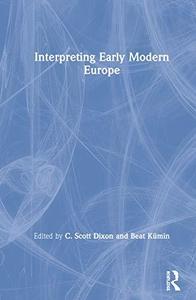

E-Books → Struggling for a Social Europe Neoliberal Globalization and the Birth of a European Social Movement
Published by: voska89 on 18-03-2024, 07:17 |  0
0

Free Download Andy Mathers, "Struggling for a Social Europe: Neoliberal Globalization and the Birth of a European Social Movement"
English | 2007 | pages: 224 | ISBN: 0754645800, 1138266906 | PDF | 2,6 mb
Protests at summit meetings have inspired intense debate over the nature and significance of the 'anti-globalization' or 'anti-capitalist' movement. However, the European dimension of this movement is still largely unknown. In this insightful book Andy Mathers addresses this deficit by focusing on events that have marked the birth of a European social movement. He relates the development of the movement to key matters such as economic, employment and welfare state restructuring along neoliberal lines. He also challenges ideas about the nature of contemporary collective action and the character of present day social movements. Mathers discusses the significance of the movement and its future development through a critical engagement with the work of major writers in European sociology and of academics influential in the wider global movement such as Pierre Bourdieu. A postscript brings readers fully up-to-date with developments in the type of 'social Europe' propagated by the institutions of the EU as well as in the maturation of a social movement to oppose it.
E-Books → Shakespeare and Tyranny Regimes of Reading in Europe and Beyond
Published by: voska89 on 18-03-2024, 06:59 |  0
0

Free Download Keith Gregor, "Shakespeare and Tyranny: Regimes of Reading in Europe and Beyond"
English | ISBN: 1443860603 | 2014 | 290 pages | PDF | 2 MB
The book brings together a selection of essays on the reception and dissemination of Shakespeare's plays in England and beyond from the 17th century to the present. Written from the perspective of a nation or cluster of nations in which Shakespeare has been used either to reflect, legitimize or challenge different versions of authoritarian rule, each of the chapters offers a picture of Shakespeare as unwitting commentator on some of the most significant and unsettling political events in Europe and elsewhere. Illustrating and analyzing changing attitudes to Shakespeare and his work in various tyrannical and post-tyrannical contexts in both Western and Eastern Europe, North Africa and South America, the volume provides insights into issues like the role of censorship and self-censorship in the revision and production of Shakespearean material; institutional controls on the dissemination and publication of Shakespeare's work; assumptions and techniques in the staging of his plays; state intervention in the elaboration of a Shakespeare "canon"; the role of Shakespeare in the construction of identity under tyranny; and the pertinence or otherwise of the subversion/containment paradigm following events such as the collapse of communism and the so-called "Arab Spring".
E-Books → Settlement change across Medieval Europe Old paradigms and new vistas
Published by: voska89 on 18-03-2024, 06:57 |  0
0

Free Download Dr. Niall Brady, "Settlement change across Medieval Europe: Old paradigms and new vistas "
English | ISBN: 9088908079 | 2019 | 446 pages | PDF | 38 MB
The idea that the past was an era with long periods of little or no change is almost certainly false. Change has always affected human society. Some of the catalysts for change were exogenous and lay in natural transformations, such as climate change or plant and animal diseases. Others came from endogamous processes, such as demographic change and the resulting alterations in demographic pressure. They might be produced by economic changes in the agrarian economy such as crop- or stock-breeding or better agricultural husbandry systems with the resultant greater harvests. Equally, they might be from technological developments in industry and manufacturing affecting traditional forms of production. We should also note changes in ideology within society and even between principal groups, such as secular and ecclesiastical bodies. We need to consider the impact of politics and warfare.
E-Books → Rescued by Europe Social and Labour Market Reforms in Italy from Maastricht to Berlusconi
Published by: voska89 on 18-03-2024, 06:42 |  0
0

Free Download Elisabetta Gualmini, "Rescued by Europe?: Social and Labour Market Reforms in Italy from Maastricht to Berlusconi"
English | 2004 | pages: 201 | ISBN: 9053566511 | PDF | 1,5 mb
As a result of its political and economic turmoil for much of the postwar period, Italy was considered the "bad seed" in the European community. Harsh ideological divisions, chronic executive instability, inefficient bureaucracy, uneven socio-economic development, organized crime, and unbalanced public finances all contributed to this negative perception of the nation. Yet a massive economic and social overhaul was launched in the 1990s as part of Italy's efforts to meet the famous Maastricht requirements in order to join the Economic and Monetary Union (EMU).
E-Books → Militarism and the Indo–Europeanizing of Europe
Published by: voska89 on 18-03-2024, 05:20 |  0
0

Free Download Robert Drews, "Militarism and the Indo-Europeanizing of Europe"
English | ISBN: 0367886006 | 2019 | 296 pages | EPUB | 2 MB
This book argues that the Indo-Europeanizing of Europe essentially began shortly before 1600 BC, when lands rich in natural resources were taken over by military forces from the Eurasian steppe and from southern Caucasia. First were the copper and silver mines (along with good harbors) in Greece, and the copper and gold mines of the Carpathian basin. By ca. 1500 BC other military men had taken over the amber coasts of Scandinavia and the metalworking district of the southern Alps. These military takeovers offer the most likely explanations for the origins of the Greek, Keltic, Germanic and Italic subgroups of the Indo-European language family.
E-Books → Medieval Eastern Europe, 500–1300 A Reader
Published by: voska89 on 18-03-2024, 05:13 |  0
0

Free Download Medieval Eastern Europe, 500-1300
by Curta, Florin;
English | 2024 | ISBN: 1487544871 | 391 pages | True PDF EPUB | 20.98 MB
E-Books → Medicine and Society in Early Modern Europe
Published by: voska89 on 18-03-2024, 05:12 |  0
0

Free Download Medicine and Society in Early Modern Europe By Mary Lindemann
1999 | 263 Pages | ISBN: 0521412544 | PDF | 13 MB
Medicine and Society in Early Modern Europe, offers undergraduate students a concise introduction to a subject rich in historical excitement and interest. Mary Lindemann, a distinguished scholar of the history of medicine, writes with exceptional clarity and examines medicine from a social and cultural perspective rather than a narrowly scientific one. She focuses on the experience of illness and on patients and folk healers as much as on the rise of medical science, doctors and hospitals.
E-Books → Maniera Greca in Europe's Catholic East On Identities of Images in Lithuania and Poland (1380s–1720s)
Published by: voska89 on 18-03-2024, 05:03 |  0
0

Free Download Giedre Mickunaite, "Maniera Greca in Europe's Catholic East: On Identities of Images in Lithuania and Poland (1380s-1720s) "
English | ISBN: 946298266X | 2023 | 238 pages | PDF | 3 MB
How and why does vernacular art become foreign? What does 'Greek manner' mean in regions far beyond the Mediterranean? What stories do images need? How do narratives shape pictures? The study addresses these questions in Byzantine paintings from the former Grand Duchy of Lithuania, contextualized with evidence from Poland, Serbia, Russia, and Italy. The research follows developments in artistic practices and the reception of these images, as well as distinguishing between the Greek manner - based on visual qualities - and the style favoured by the devout, sustained by cults and altered through stories. Following the reception of Byzantine and pseudo-Byzantine art in Lithuania and Poland from the late fourteenth through the early eighteenth centuries, Maniera Greca in Europe's Catholic East argues that tradition is repetitive order achieved through reduction and oblivion, and concludes that the sole persistent understanding of the Greek image has been stereotyped as the icon of the Mother of God.
E-Books → Judenrat The Jewish Councils in Eastern Europe under Nazi Occupation
Published by: voska89 on 18-03-2024, 04:30 |  0
0

Free Download Judenrat: The Jewish Councils in Eastern Europe under Nazi Occupation By Isaiah Trunk; Steven T. Katz
1996 | 663 Pages | ISBN: 080329428X | DJVU | 8 MB
During World War II, more than five million Jews lived under Nazi rule in Eastern Europe. In occupied Poland, the Baltic countries, Byelorussia, and Ukraine, they were stripped of property and "resettled" in ghettos. The German authorities establishedin each ghetto a Jewish Council, or Judenrat, to maintain minimal living standards. The Judenrat was required to carry out Nazi directives against other Jews, to supply forced labor, and eventually to cooperate in the Final Solution. Did the Jewish leaders of the ghettos, who were also victims, assist their murderers? If cooperation with the Nazi oppressors was morally defensible during the first stage in organizing the ghettos, what about later, when deportations to death camps began? Trunk analyzes situations where the Councils and ghetto police were forced to send their own communities to death. Some Council members chose suicide rather than supply lists to the Nazis; others used delaying tactics. Some handed over the lists. Some joined their families in the gas chamber. In assessing guilt and innocence, Trunk never allows the reader to forget that the impossible choices facing the Jewish leaders were created by the Nazis.
E-Books → Interpreting Early Modern Europe
Published by: voska89 on 18-03-2024, 04:19 |  0
0

Free Download Interpreting Early Modern Europe By C. Scott Dixon (editor), Beat Kümin (editor)
2019 | 526 Pages | ISBN: 1138799009 | EPUB | 6 MB
Interpreting Early Modern Europe is a comprehensive collection of essays on the historiography of the early modern period (circa 1450-1800). Concerned with the principles, priorities, theories, and narratives behind the writing of early modern history, the book places particular emphasis on developments in recent scholarship. Each chapter, written by a prominent historian caught up in the debates, is devoted to the varieties of interpretation relating to a specific theme or field considered integral to understanding the age, providing readers with a 'behind-the-scenes' look at how historians have worked, and still work, within these fields. At one level the emphasis is historiographical, with the essays engaged in a direct dialogue with the influential theories, methods, assumptions, and conclusions in each of the fields. At another level the contributions emphasise the historical dimensions of interpretation, providing readers with surveys of the component parts that make up the modern narratives. Supported by extensive bibliographies, primary materials, and appendices with extracts from key secondary debates, Interpreting Early Modern Europe provides a systematic exploration of how historians have shaped the study of the early modern past. It is essential reading for students of early modern history.



